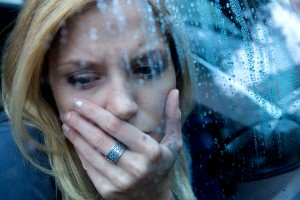Four signs you may have Post-Traumatic Stress Disorder
 (BPT) – Post-traumatic Stress Disorder (PTSD) is a mental health condition that affects millions of individuals worldwide. While it is often closely associated with combat veterans and other members of the military, the fact is PTSD can affect anyone who experiences a traumatic event.
(BPT) – Post-traumatic Stress Disorder (PTSD) is a mental health condition that affects millions of individuals worldwide. While it is often closely associated with combat veterans and other members of the military, the fact is PTSD can affect anyone who experiences a traumatic event.
During the past year, many communities across the U.S. have experienced devastating tragedies. Hurricane Sandy, the shootings in Newtown, the Boston Marathon bombings, and most recently, cases of severe weather in the Plains states have left many individuals, families and communities reeling. While most people are amazingly resilient following trauma, for some, the emotional toll these events cause can last much longer.
About 60 percent of men and 50 percent of women will experience at least one traumatic event in their lifetime, according to the National Center for PTSD, U.S. Department of Veteran Affairs. Overall, about 8 percent of men and 20 percent of women will develop PTSD. While traumatic events such as natural disasters, fires or acts of violence can affect an entire community, other instances like a terrifying car accident can affect a single individual.
Most people will have stress-related reactions following a traumatic event, yet only some will develop PTSD. If these reactions do not begin to go away over time or get worse, or impact day-to-day life, it may be PTSD.
PTSD symptoms often include:
* Reliving the event through nightmares and flashbacks
* Avoiding situations that remind you of the event, such as large crowds or driving a car
* Negative changes in beliefs and feelings. This can include feelings of guilt, fear or shame.
* Feeling keyed up or jittery
“PTSD is a condition that many people believe only affects members of the military and veterans, but that simply is not the case,” says Dr. Douglas G. Jacobs, founder and medical director of Screening for Mental Health, Inc. “While combat veterans do have a high rate of PTSD, we also see PTSD in members of the public, especially among first responders, victims of violence or those affected by natural disasters.”